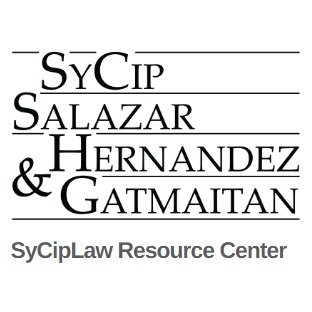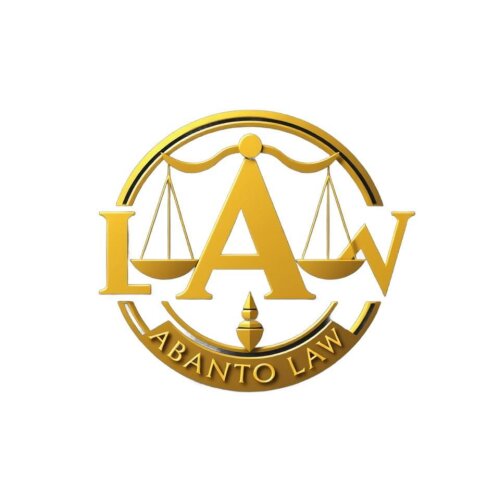Best Restructuring & Insolvency Lawyers in Makati City
Share your needs with us, get contacted by law firms.
Free. Takes 2 min.
List of the best lawyers in Makati City, Philippines
About Restructuring & Insolvency Law in Makati City, Philippines
Makati City is the financial hub of the Philippines, home to many local and international businesses. Restructuring and insolvency law in Makati City refers to the legal processes and frameworks available to businesses and individuals who are facing financial distress and are unable to meet their debt obligations. The goal of restructuring is often to rehabilitate or reorganize a company so it can continue its operations, while insolvency involves the fair settlement of debts through liquidation or rehabilitation. These laws are crucial for protecting creditor and debtor rights, supporting business continuity, and ensuring economic stability within the city.
Why You May Need a Lawyer
Legal support in restructuring and insolvency situations can be vital for both businesses and individuals. Here are some common scenarios where professional legal advice is needed:
- Businesses facing cash flow problems and seeking to avoid closure
- Creditors seeking to collect outstanding debts from financially distressed companies
- Shareholders and directors concerned about personal liability during insolvency proceedings
- Companies wishing to file a petition for rehabilitation or liquidation
- Negotiating with creditors for debt restructuring or debt relief arrangements
- Understanding the full implications of insolvency, including asset disposition and priorities among creditors
An experienced lawyer provides guidance on compliance, negotiations, and court filings, ensuring that all parties’ interests are legally protected throughout the process.
Local Laws Overview
Restructuring and insolvency in Makati City are governed principally by Philippine national law, particularly the Financial Rehabilitation and Insolvency Act of 2010 (FRIA) or Republic Act No. 10142. This law sets out the processes for out-of-court and court-supervised rehabilitation, pre-negotiated rehabilitation, and liquidation of insolvent debtors. Key aspects include:
- Eligibility for rehabilitation and liquidation, including both voluntary and involuntary procedures
- Criteria for determining insolvency and the process for submitting a petition in court
- Appointment of a rehabilitation receiver or liquidator to oversee proceedings
- Moratorium on debt payments during proceedings to allow the debtor temporary relief
- Protections for both debtors and creditors, including the order in which claims are paid
- Special considerations for micro, small, and medium enterprises (MSMEs)
Local courts in Makati City such as the Regional Trial Court have specialized commercial divisions that handle restructuring and insolvency cases. Compliance with local rules and timelines is paramount.
Frequently Asked Questions
What is the difference between restructuring and insolvency?
Restructuring involves reorganizing a business’s debts and operations to restore its financial health and continue its activities. Insolvency refers to a financial state where the debtor cannot pay its debts as they become due, often leading to formal proceedings like liquidation or rehabilitation.
Who can file for rehabilitation or insolvency in Makati City?
Both individuals and corporations registered or operating in Makati City can file for rehabilitation or insolvency. Creditors may also initiate proceedings if certain legal criteria are met.
What happens to my business during rehabilitation proceedings?
A court-appointed rehabilitation receiver temporarily manages the business, and a stay order is issued to suspend all claims against the company. Operations may continue under a rehabilitation plan aimed at paying creditors over time.
Are directors or shareholders personally liable for insolvency?
Generally, corporations have separate legal personalities, so directors and shareholders are not personally liable unless there is fraud, gross negligence, or other extraordinary circumstances proven in court.
How long does the restructuring or insolvency process take?
The duration varies depending on complexity, court backlog, and creditor cooperation, but rehabilitation proceedings are expected to be concluded within a year from commencement, although this can sometimes be extended.
Can a company settle debts with creditors out of court?
Yes, out-of-court or informal restructuring agreements are available under FRIA, especially if major creditors representing at least 67 percent agree to the terms. Legal guidance is still recommended.
What are the effects of a stay or suspension order?
A stay order temporarily halts all collection activities, lawsuits, and enforcement of claims against the debtor, giving time to formulate a rehabilitation plan or orderly liquidation.
Can employees be affected by the insolvency of their employer?
Employees are recognized as creditors and their claims for wages and benefits are given preference. Legal processes also provide for continued employment if the business is rehabilitated.
How are creditors paid in liquidation?
Payments follow a specific legal order: secured creditors are paid first, followed by employees, government claims, and finally unsecured creditors. Any remaining assets go to shareholders.
Do I need a lawyer to file for bankruptcy or restructuring?
While not always mandatory, having a lawyer is highly advisable due to the complexity of the laws, court procedures, and the importance of protecting your legal and financial interests.
Additional Resources
For more information and assistance on restructuring and insolvency matters, consider reaching out to the following:
- Securities and Exchange Commission (SEC) - Supervision of corporate insolvency cases
- Department of Trade and Industry (DTI) - Support for MSMEs facing financial distress
- Regional Trial Court of Makati - Commercial Court Division for case filings
- Integrated Bar of the Philippines - Directory of legal practitioners
- Chamber of Commerce and Industry Groups - Business advisory and support
These organizations can offer guidance or direct you to specialist lawyers familiar with Makati’s business environment and applicable laws.
Next Steps
If you believe you require legal assistance regarding restructuring and insolvency in Makati City, take the following steps:
- Assess your financial situation and gather all relevant documents such as financial statements, contracts, and correspondence with creditors
- Consult with an experienced lawyer specializing in restructuring and insolvency law to evaluate your options and rights
- Prepare to discuss your goals, such as business continuation, asset protection, or orderly liquidation
- Act quickly, as delays could worsen financial exposure or limit your legal options
- Stay informed about your rights and obligations throughout the process
Taking these steps early can help you regain control over your financial future, whether you are seeking to rescue your business or navigate the process of orderly debt settlement in Makati City.
Lawzana helps you find the best lawyers and law firms in Makati City through a curated and pre-screened list of qualified legal professionals. Our platform offers rankings and detailed profiles of attorneys and law firms, allowing you to compare based on practice areas, including Restructuring & Insolvency, experience, and client feedback.
Each profile includes a description of the firm's areas of practice, client reviews, team members and partners, year of establishment, spoken languages, office locations, contact information, social media presence, and any published articles or resources. Most firms on our platform speak English and are experienced in both local and international legal matters.
Get a quote from top-rated law firms in Makati City, Philippines — quickly, securely, and without unnecessary hassle.
Disclaimer:
The information provided on this page is for general informational purposes only and does not constitute legal advice. While we strive to ensure the accuracy and relevance of the content, legal information may change over time, and interpretations of the law can vary. You should always consult with a qualified legal professional for advice specific to your situation.
We disclaim all liability for actions taken or not taken based on the content of this page. If you believe any information is incorrect or outdated, please contact us, and we will review and update it where appropriate.
















